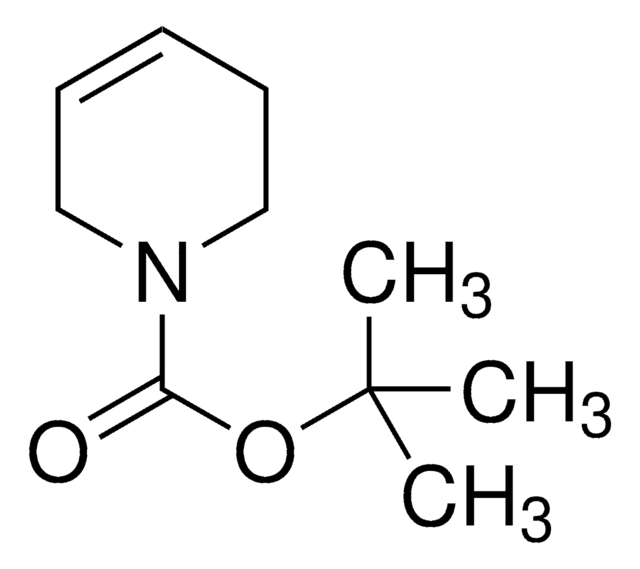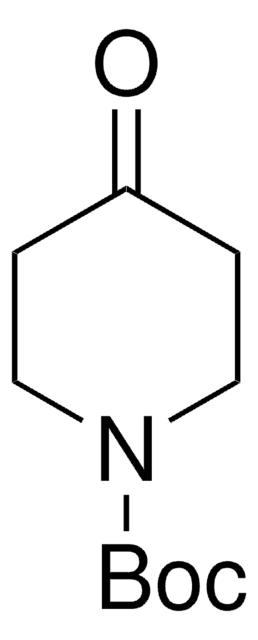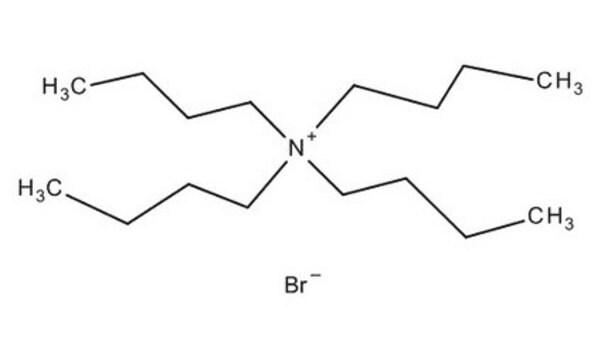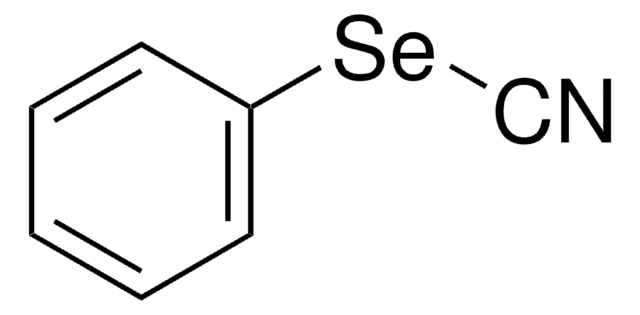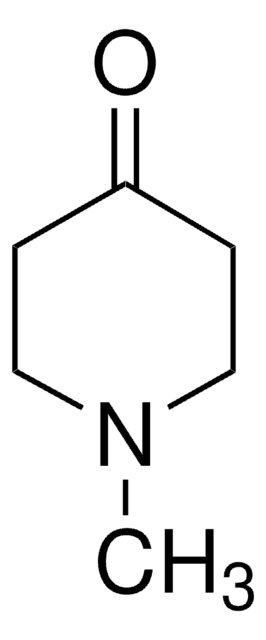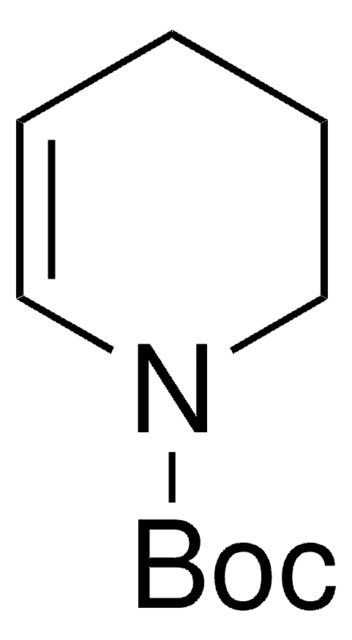134759
1,2,3,6-Tetrahydropyridine
97%
Synonyme(s) :
Δ3-Piperidine, 1,2,5,6-Tetrahydropyridine, 3,6-Dihydro-2H-pyridine
About This Item
Produits recommandés
Niveau de qualité
Essai
97%
Forme
liquid
Indice de réfraction
n20/D 1.48 (lit.)
pb
108 °C (lit.)
Pf
−48 °C (lit.)
Densité
0.911 g/mL at 25 °C (lit.)
Chaîne SMILES
C1CC=CCN1
InChI
1S/C5H9N/c1-2-4-6-5-3-1/h1-2,6H,3-5H2
Clé InChI
FTAHXMZRJCZXDL-UHFFFAOYSA-N
Vous recherchez des produits similaires ? Visite Guide de comparaison des produits
Application
Conditionnement
Mention d'avertissement
Danger
Mentions de danger
Conseils de prudence
Classification des risques
Eye Irrit. 2 - Flam. Liq. 2 - Skin Irrit. 2 - STOT SE 3
Organes cibles
Respiratory system
Code de la classe de stockage
3 - Flammable liquids
Classe de danger pour l'eau (WGK)
WGK 3
Point d'éclair (°F)
60.8 °F - closed cup
Point d'éclair (°C)
16 °C - closed cup
Équipement de protection individuelle
Eyeshields, Faceshields, Gloves, type ABEK (EN14387) respirator filter
Faites votre choix parmi les versions les plus récentes :
Déjà en possession de ce produit ?
Retrouvez la documentation relative aux produits que vous avez récemment achetés dans la Bibliothèque de documents.
Notre équipe de scientifiques dispose d'une expérience dans tous les secteurs de la recherche, notamment en sciences de la vie, science des matériaux, synthèse chimique, chromatographie, analyse et dans de nombreux autres domaines..
Contacter notre Service technique
